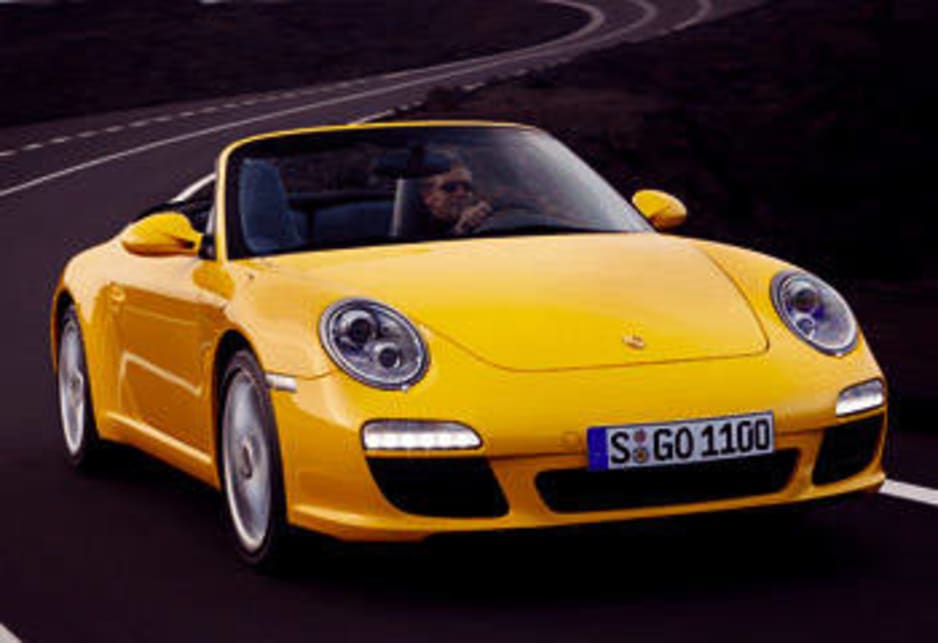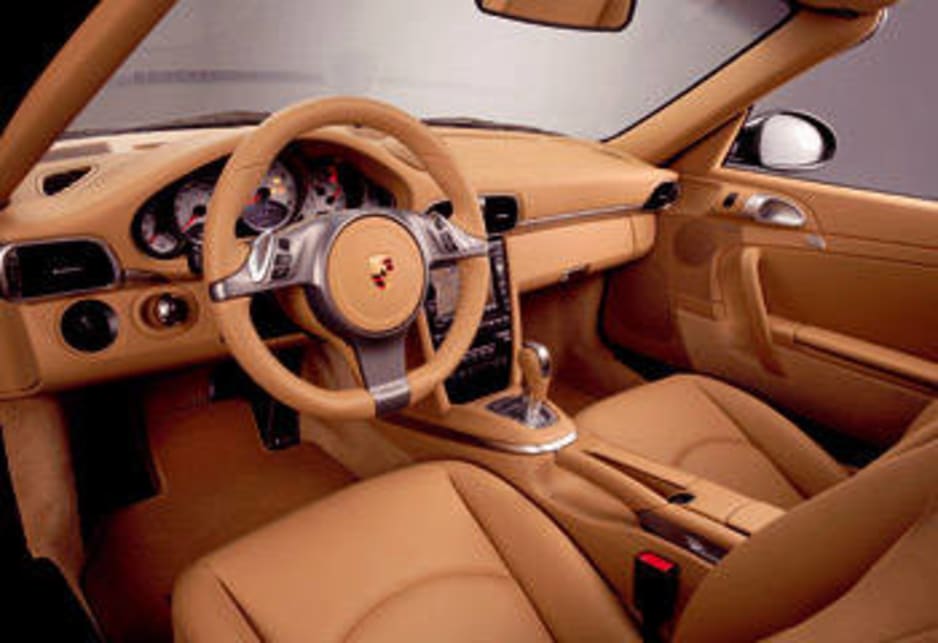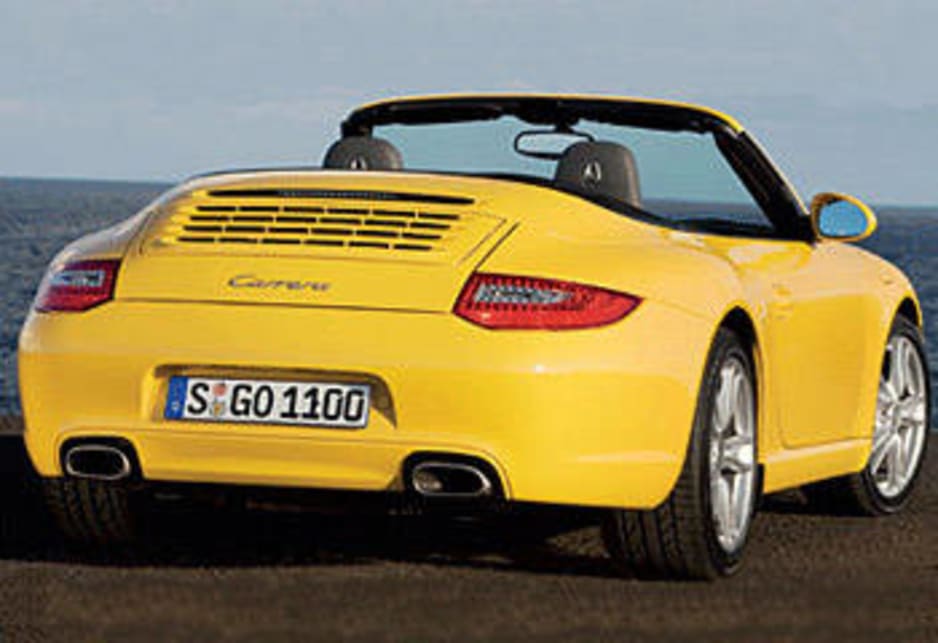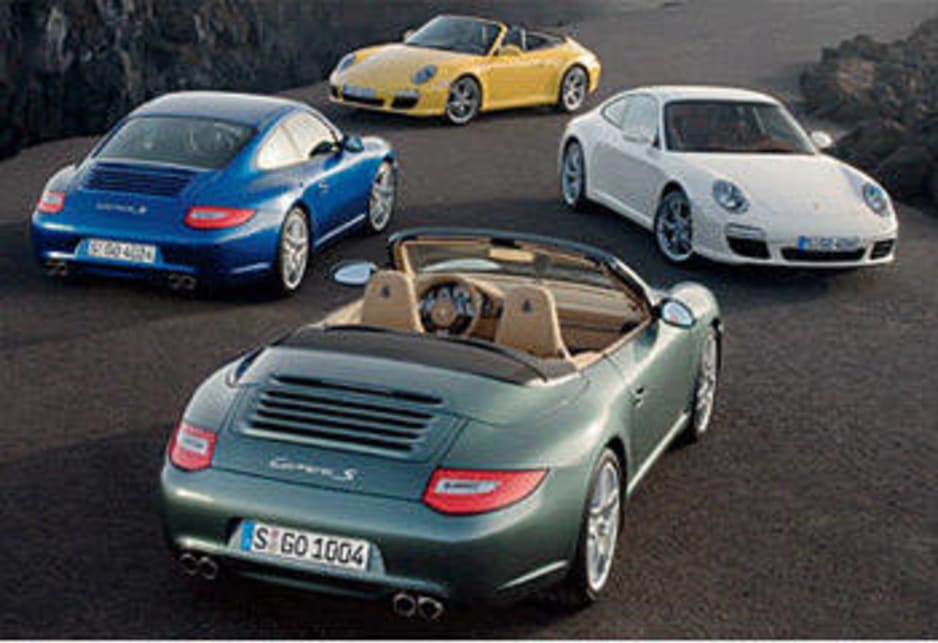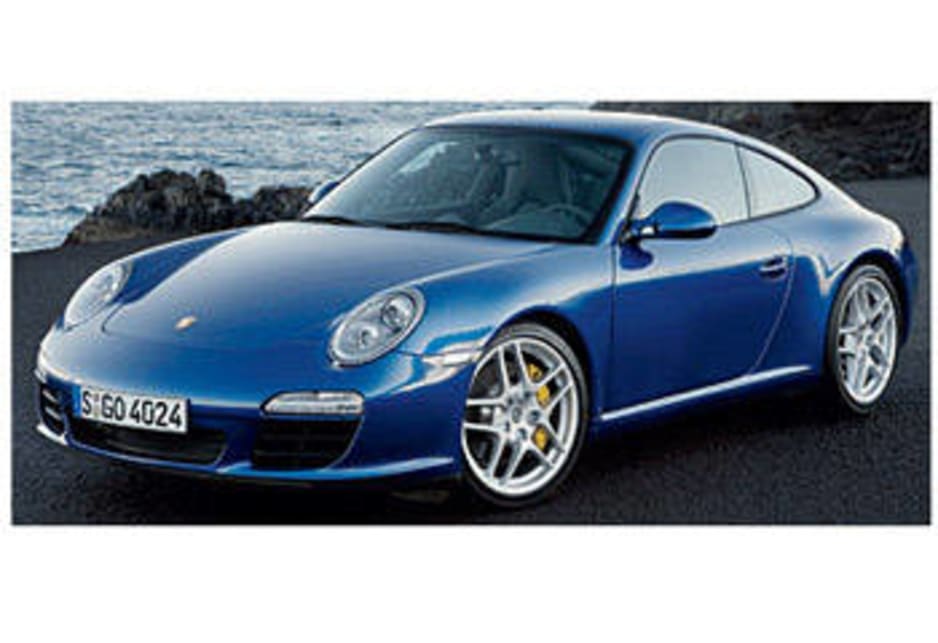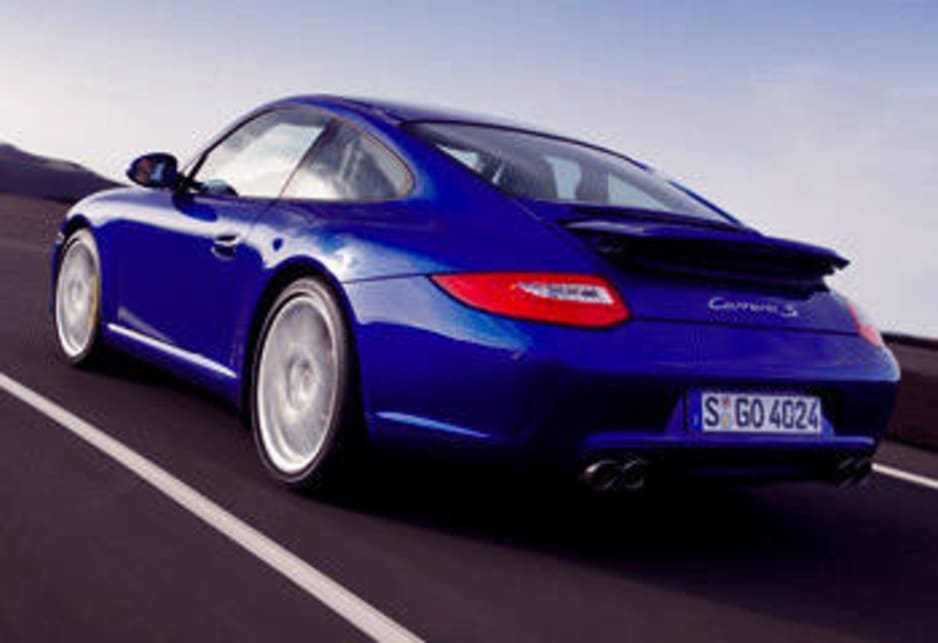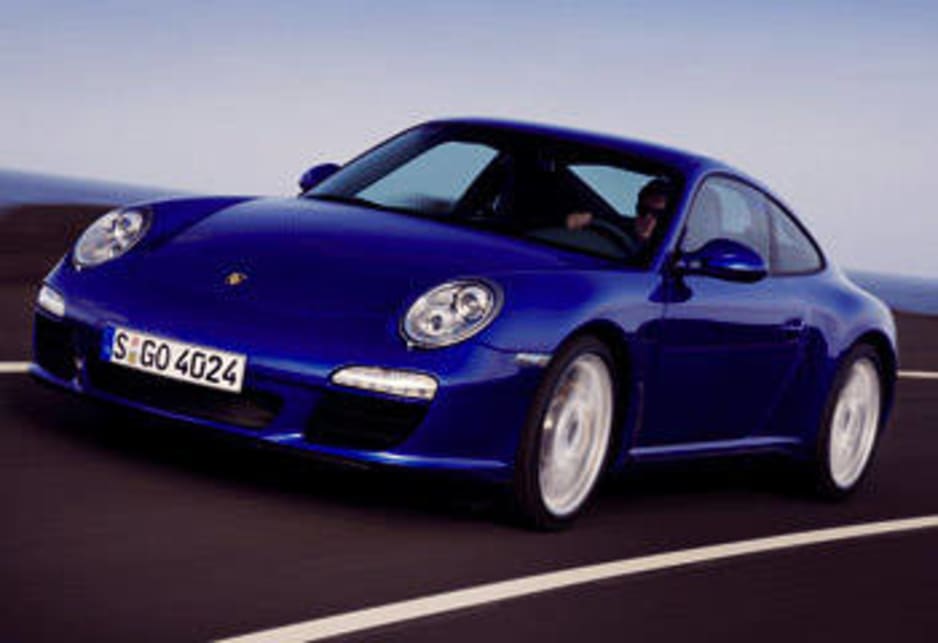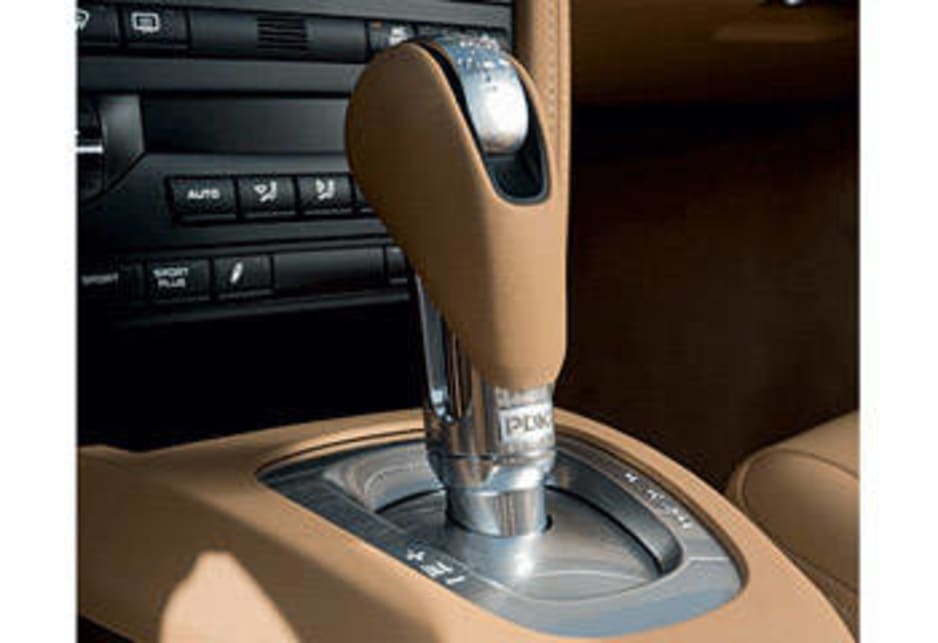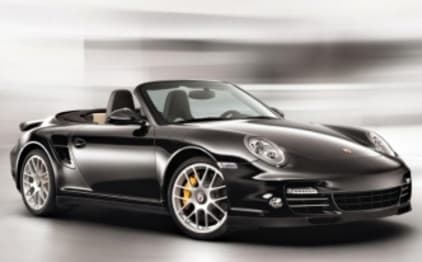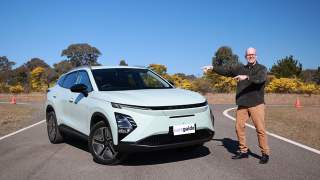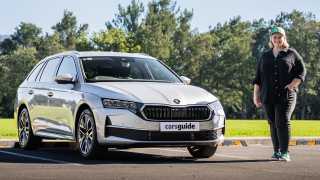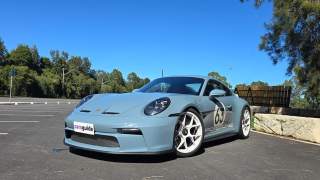
Porsche 911 Carrera 2008 review
- Porsche 911
- Porsche 911 2008
- Porsche 911 2011
- Porsche 911 Reviews
- Porsche Reviews
- Porsche Coupe Range
- Coupe
- Porsche
- Prestige & Luxury Cars
- Sports cars
The iconic shape of Porsche's 911 is unmistakable even though it has been evolving since the first prototype, hand built by Ferdinand Porsche, back in 1948.
The latest generation, called 997, has undergone a mid-life update complete with totally new engines and for the first time, a double clutch self shifting, seven speed manual transmission called PDK (Porsche DoppelKupplungsgetreibe). PDK is similar to VW's DSG double clutch system, not surprising as Porsche is VW's major shareholder. Think of a large motorcycle multiplate clutch with a smaller one fitted inside and you have a good mental picture of PDK (and DSG).
It replaces the old Tiptronic full automatic in 911 and will filter through to all models except Cayenne SUV which retains Tiptronic.
The double clutch system has been adopted for weight savings, quicker shifts, boosted performance and lower fuel consumption and emissions.
For all intents and purposes, Porsche really only need offer the 911 with PDK because it makes a manual transmission redundant. But “purists” apparently want a six speed manual and Porsche is not one to rock the boat with customers.
The two new naturally aspirated flat six cylinder engines are in 3.6 and 3.8-litre variants and though the same displacement as before, they are completely new.
Both have been designed to pass stringent new European emissions regulations while producing more power and torque, using less fuel in the process. Porsche has done this by fitting direct fuel injection that delivers high pressure fuel and air straight into the combustion chamber. The compact engines are also semi-dry sump and feature variable cam timing and other refinements to enhance performance, reliability, fuel economy and reduce weight.
The 3.6 in Carrera is now good for 254kW/390Nm and the 3.8 in Carrera S pumps out 283kW/420Nm. Both are available with PDK which aids 0-100kmh sprint times (4.5 seconds and 4.3 seconds respectively) when the optional Sports Chrono package is fitted. Sports Chrono includes an electronic launch control.
Power, acceleration and top speed of both cars is significantly better than the models they replace.
The high compression engines now with 7500rpm redlines, rest lower in 911's engine bay for improved stability and have clever components such as a variable oil pump to reduce power loss and the internals are treated to cut friction.
Porsche has been able to reduce the number of engine components by 40 per cent by integrating many components such as bearings.
At a tad over 1400kg, the new 911 models are relatively light for optimized performance and handling.
Aerodynamics have been improved though body panels remain the same with slight tweaks such as LED front running lights and new-look tail lights.
The interior has been freshened with more features and improved equipment such as the touch screen control for satnav and other functions. Bluetooth connectivity is simplified and there are jacks for USB, memory cards and an iPod.
We were able to sample the new Carrera and Carrera S in Germany last week with the new PDK transmission and couldn't help but be impressed. The test cars has Sports Chrono fitted which gives Normal, Sport and Sport Plus modes that alter various dynamic settings, especially PDK and the suspension.
We were stunned at how quick PDK flicks between gears either in Drive mode like an automatic or by steering wheel button or stick shift changers. No manual would get anywhere near the PDK and better yet, it will flick down more than one gear at a time if necessary without the need to go through each gear.
Engine performance is strong offering bountiful torque across the rev range and stunning performance when the `wick is lit' at around 5000rpm.
It will rev to just under 8000rpm emitting that characteristic 911 wail as the revs rise.
We tried the launch control and put away a 4.5 second 0-100kmh split in the S model without trouble. But these cars are just as much about touring and everyday comfort as they are about rapid acceleration. They are simply superb driver's cars with supple controlled suspension (unless track-oriented Sport Plus is engaged) and are built to the highest quality.
They have quality Bose audio systems, comfortable semi sports seats, climate control, power seats adjustment, but plenty of options are available. There are even two kiddie seats in the back...
The new generation Porsche 911 will be slightly more expensive than the current model when pricing is finalized dependent on new Luxury Tax levels.
Driving the 911 came at the end of a three week super car orgy for us that included a steer of the Maserati Quattroporte GTS, Bentley Flying Spur, and Lamborghini Gallardo. The new 911 rests comfortably at the top of our favourite list with the Gallardo - at almost half the price.
Related stories: New Porsche 911 steps up a gear
Pricing guides
Range and Specs
| Vehicle | Specs | Price* | |
|---|---|---|---|
| GT3 RS 4.0 | 4.0L, PULP, 6 SP MAN | No recent listings | 2011 Porsche 911 2011 GT3 RS 4.0 Pricing and Specs |
| GT3 | 3.8L, PULP, 6 SP MAN | No recent listings | 2011 Porsche 911 2011 GT3 Pricing and Specs |
| GT3 RS | 3.8L, PULP, 6 SP MAN | No recent listings | 2011 Porsche 911 2011 GT3 RS Pricing and Specs |
| Turbo S | 3.8L, PULP, 7 SP AUTO | $109,340 – 125,730 | 2011 Porsche 911 2011 Turbo S Pricing and Specs |
$39,160
Lowest price, based on third party pricing data


